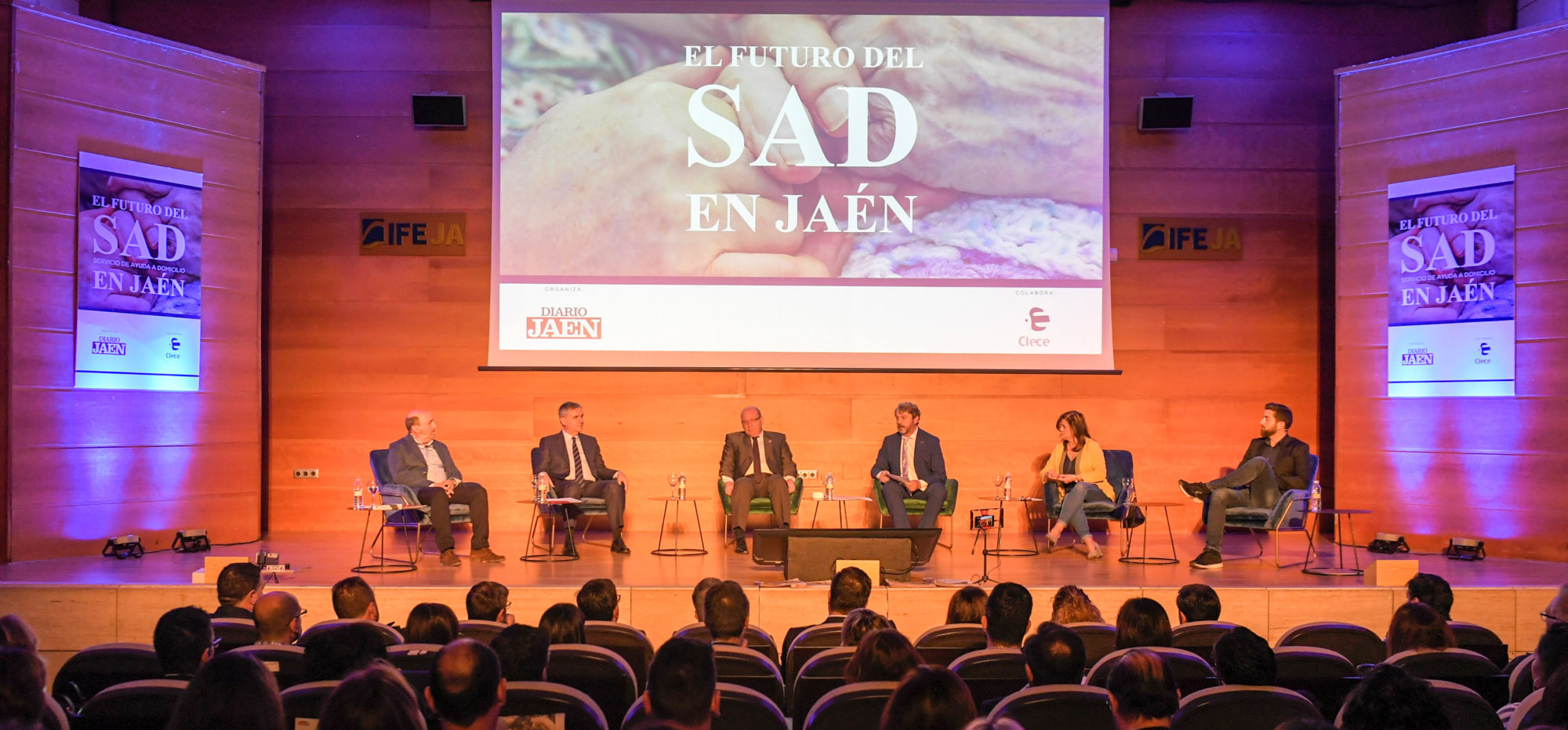
Better Financing and Dignifying Work within the Sector: Some Future Challenges for Home Help Services debated at the Jaen Forum
There is a need to improve financing, dignify the profession, and improve a service that is so important for our society. This is one of the main conclusions from the Colloquium-Forum “The Future of SAD [Home Help Services] in Jaen” that took place on 7th March at the Palacio de Congresos in Jaen.
The meeting highlighted the need for financing by public administrations as these define the price per hour cited in public invitations to tender. For Cristóbal Valderas, Clece’s Chairman, “there is no doubt that home help is a public service. Management is a different issue, and can be direct or indirect, in the hands of private companies. In Clece’s case, it provides efficiency, reduces costs, and brings greater innovation using technology”.
Jaen’s Mayor, Francisco Javier Márquez, highlighted the need to have more financial and human resources for the Home Help Service, given the ageing population in our Country. The colloquium brought together representatives from public administration, private companies, and social agents including: Mª Eugenia Valdivieso, Jaen’s Equality and Social Wellbeing representative; Francisco Cantero, Secretary General of the CCOO [European Confederation of Unions] in Jaen; Manuel Salazar, Secretary General of the UGT [Spanish General Union of Workers] in Jaen; and Cristóbal Valderas Alvarado, Clece’s Chairman.
Francisco Cantero, CCOO General Secretary for Jaen, emphasised the need to “provide a bigger budget for dependence, so it does not become a niche for precarious work. These workers are the guardian angels of our elderly people and on many occasions are covering with their own resources what the Law does not provide”.
Along the same lines, Manuel Salazar, UGT Secretary General for Jaen, spoke of the low rates stipulated in tender specifications: “At 12 Euros an hour it is impossible to provide a quality service. Companies such as Clece withdraw from tenders when the rate is precarious. Then pirate companies offering poor service make an appearance”.
“If the tender specifications are below the cost of providing the service, we are, at the very least, looking at malpractice” commented Cristóbal Valderas. In many instances, therefore, the debate about improving workers’ conditions is in difficulty. “We cannot approve laws that we then cannot finance. 80 people a day die through not receiving adequate attention, when there is an approved dependence law. We have to confront the issue of whether we fulfil the law or change it”.
Mª Eugenia Valdivieso, Jaen’s Equality and Social Wellbeing representative, emphasised that the SAD service is one of the most important services managed by the provincial government and pointed to the need for administrations to work together and provide more resources in order to improve workers’ salaries in this sector.
Another issue raised in the debate was the difference in workers’ salaries across autonomous communities. Data was provided on the hourly rate of 30 Euros in the Basque Country, against an hourly rate of 13 Euros in Andalusia. All participants in the forum agreed on the need to work to equalise salaries across the Country and improve workers’ conditions. The National Agreement on Home Help Service contains details of salaries for Home Help Services. Cristóbal Valderas pointed out that this year, and for the first time, Clece is participating in the negotiation of this Agreement.
All participants concluded the debate by reaffirming the need for greater financing and for SAD workers to have improved working conditions, given the importance of this service to society.
